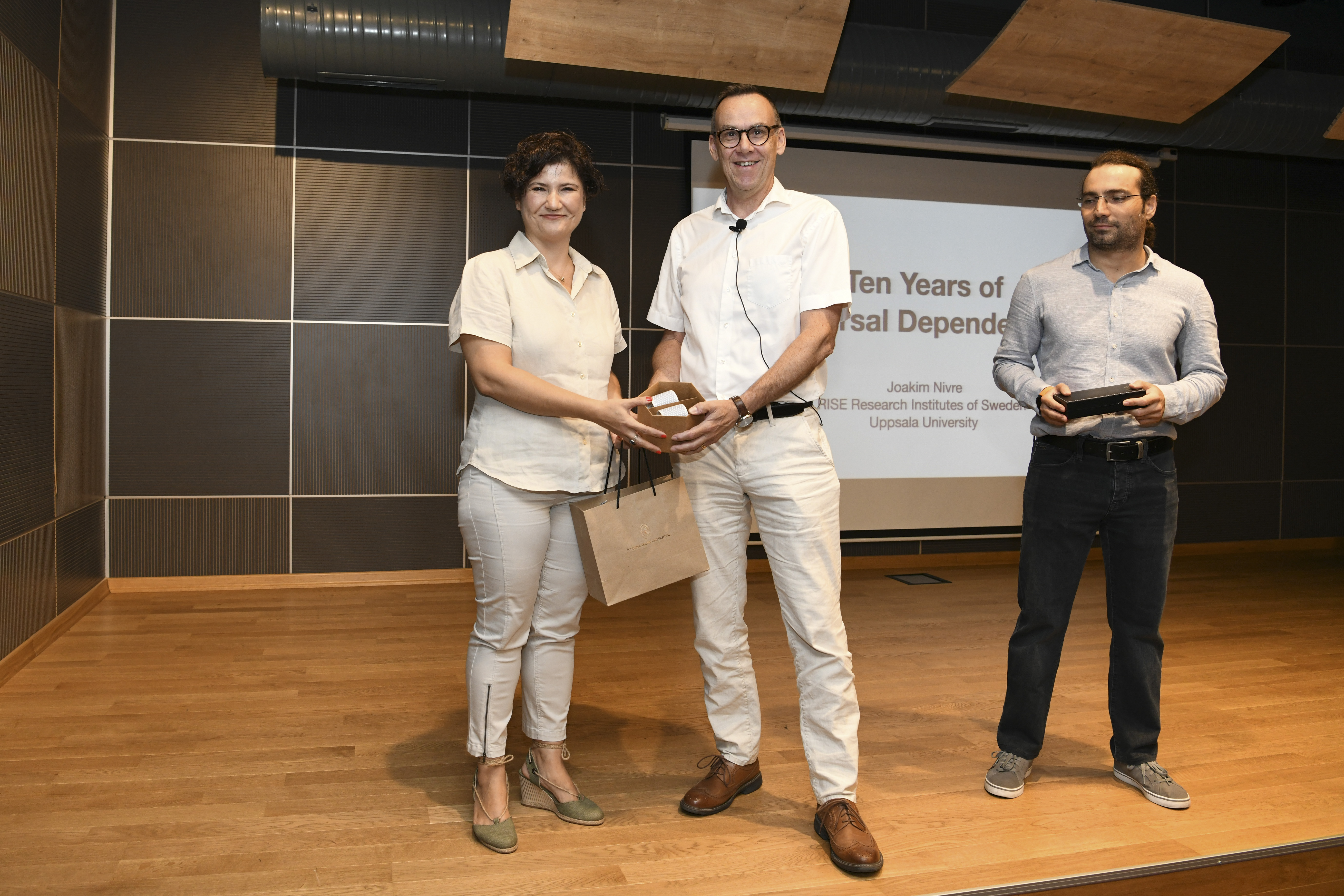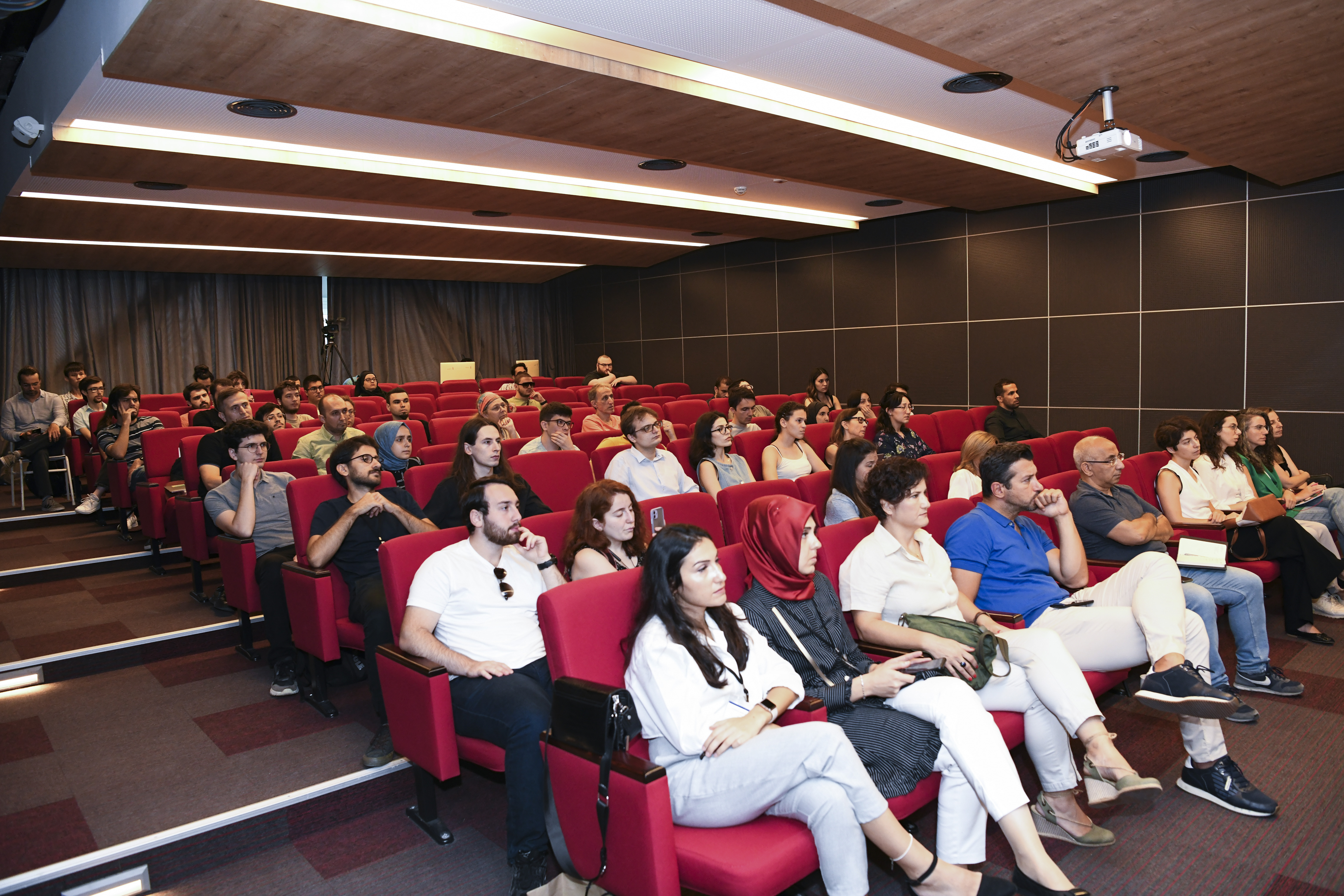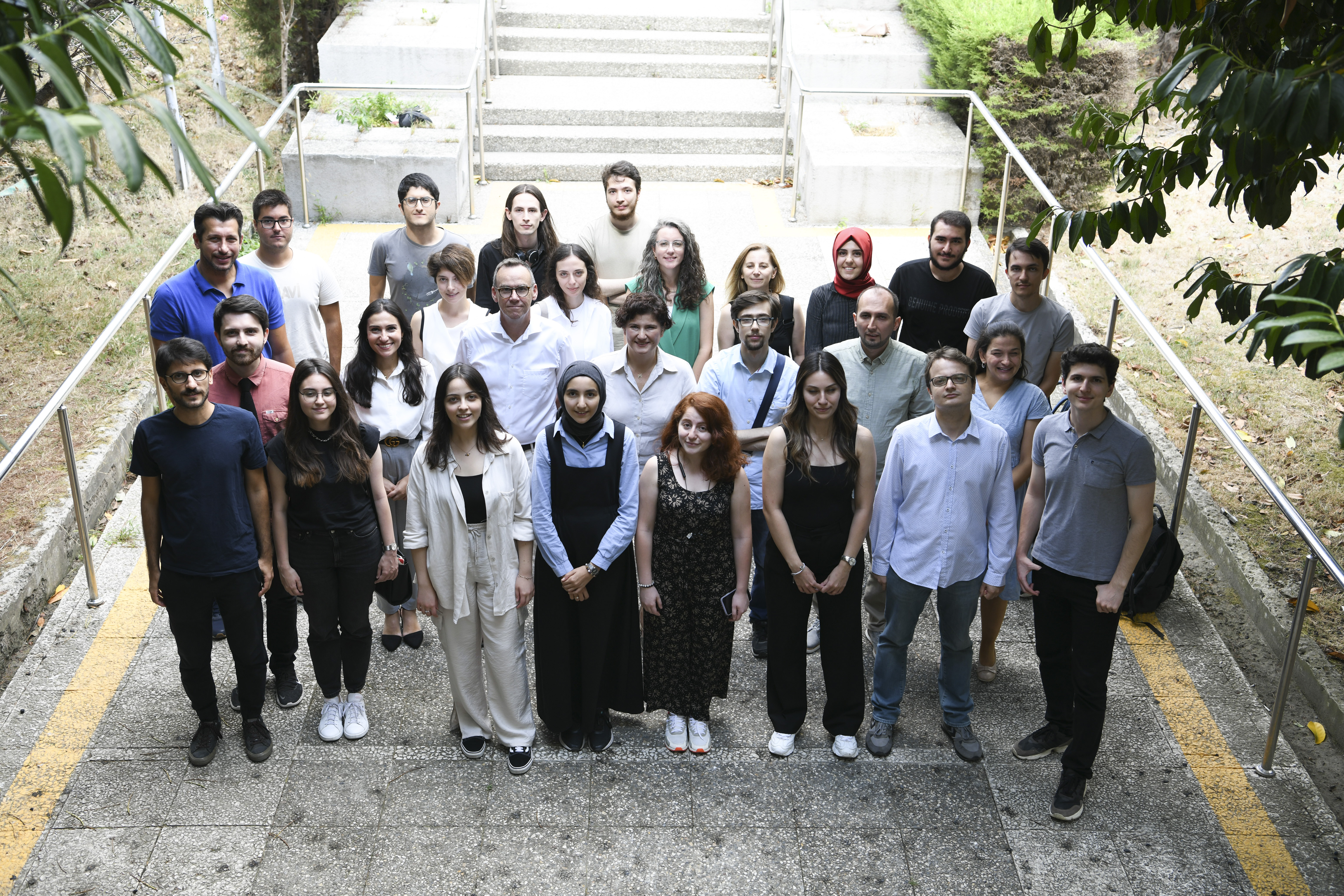As the ITUNLP group, we started our academic year at Istanbul Technical University with an extraordinary seminar given by Prof. Dr. Joakim Nivre, a renowned expert in natural language processing and computational linguistics. What made this seminar particularly special was the rich tapestry of our participants: students and researchers from various universities across Türkiye, and professionals from industry, all united by our shared curiosity and passion for natural language processing. We would like to thank Prof. Nivre and our participants once again for being with us. #nlp İTÜ Yapay Zeka ve Veri Mühendisliği Bölümü ITU Faculty of Computer and Informatics Engineering
Broadcast available online from: https://www.youtube.com/watch?v=NllSjSmSeBI



📢 Seminar Announcement 📢
We are delighted to announce an upcoming seminar on "Ten Years of Universal Dependencies" organized by the ITU NLP Research Group in collaboration with the ITU AI Student Club. This seminar will provide a comprehensive overview of the Universal Dependencies (UD) project, its development, and its impact on multilingual parser development and cross-lingual learning.
📅 Date: 7 September 2023
⏰ Time: 11:00
📍 Location: Istanbul Technical University Ayazaga Campus, Turkey
During the seminar, we are delighted to have the privilege of hosting Joakim Nivre, a widely respected expert in the field of computational linguistics. Professor Nivre, who serves as Professor of Computational Linguistics at Uppsala University and Senior Researcher at RISE (Research Institutes of Sweden), is one of the founders of the Universal Dependencies project and a fellow of the Association for Computational Linguistics. His research focuses on data-driven methods for natural language processing, with a particular emphasis on morphosyntactic and semantic analysis.
In this talk, Professor Nivre will examine the history and growth of the Universal Dependencies project, showcasing its evolution into a global collaborative effort involving over 500 researchers from around the world. He will discuss the significant role played by Universal Dependencies in facilitating new research directions in both NLP and linguistics.
We would like to invite interested participants to register for the seminar by filling out the registration form. The deadline for registration is 1 August 2023. To register, please click on the following link: Google Form Registration
The specific location of the seminar will be shared via email to the registered participants closer to the event. Stay tuned!
We look forward to your presence at the seminar!
Short Bio: Joakim Nivre is Professor of Computational Linguistics at Uppsala University and Senior Researcher at RISE (Research Institutes of Sweden). He holds a Ph.D. in General Linguistics from the University of Gothenburg and a Ph.D. in Computer Science from Växjö University. His research focuses on data-driven methods for natural language processing, in particular for morphosyntactic and semantic analysis. He is one of the main developers of the transition-based approach to syntactic dependency parsing, described in his 2006 book Inductive Dependency Parsing and implemented in the widely used MaltParser system, and one of the founders of the Universal Dependencies project, which aims to develop cross-linguistically consistent treebank annotation for many languages and currently involves over 140 languages and over 500 researchers around the world. He has produced over 300 scientific publications and has over 22,000 citations according to Google Scholar (May, 2023). He is a fellow of the Association for Computational Linguistics and was the president of the association in 2017.
Abstract: Universal Dependencies (UD) is a project developing cross-linguistically consistent treebank annotation for many languages, with the goal of facilitating multilingual parser development, cross-lingual learning, and parsing research from a language typology perspective. Since UD was launched almost ten years ago, it has grown into a large community effort involving over 500 researchers around the world, together producing treebanks for 138 languages and enabling new research directions in both NLP and linguistics. In this talk, I will review the history and development of UD, explore the UD research community through a bibliographic survey, and discuss challenges that we need to face when bringing UD into the future.